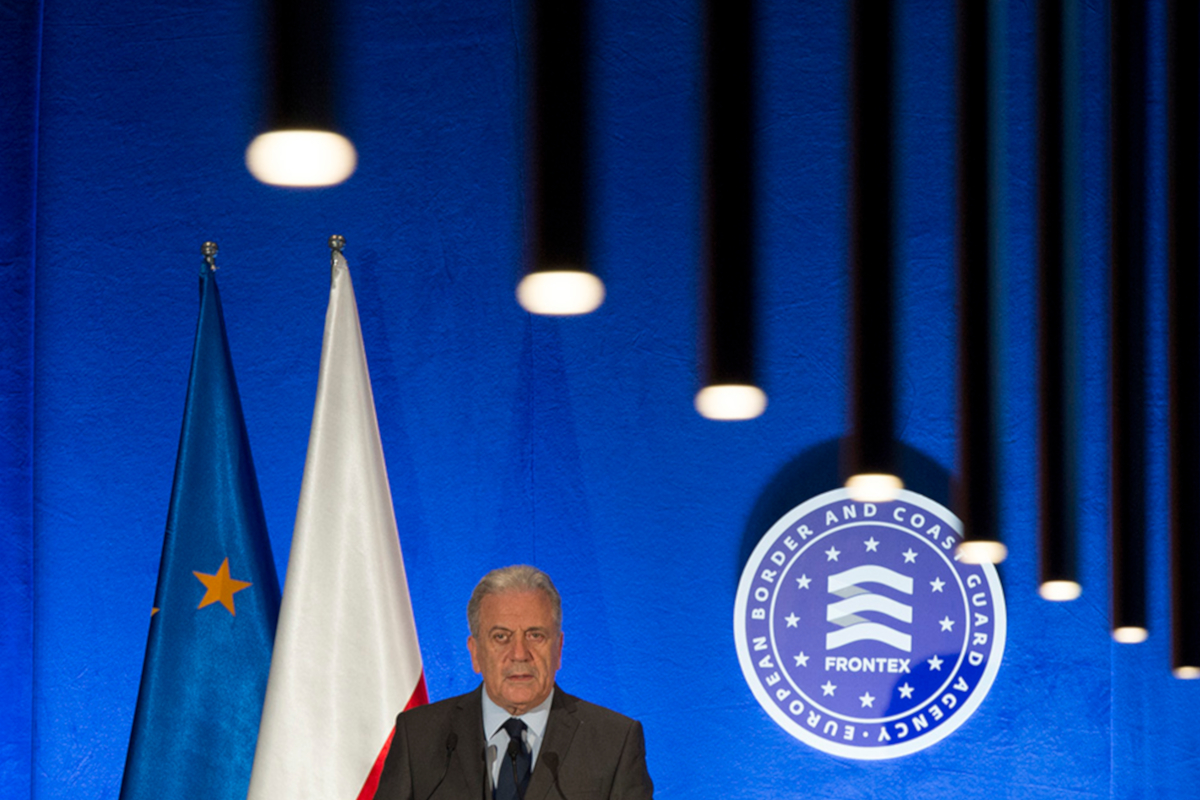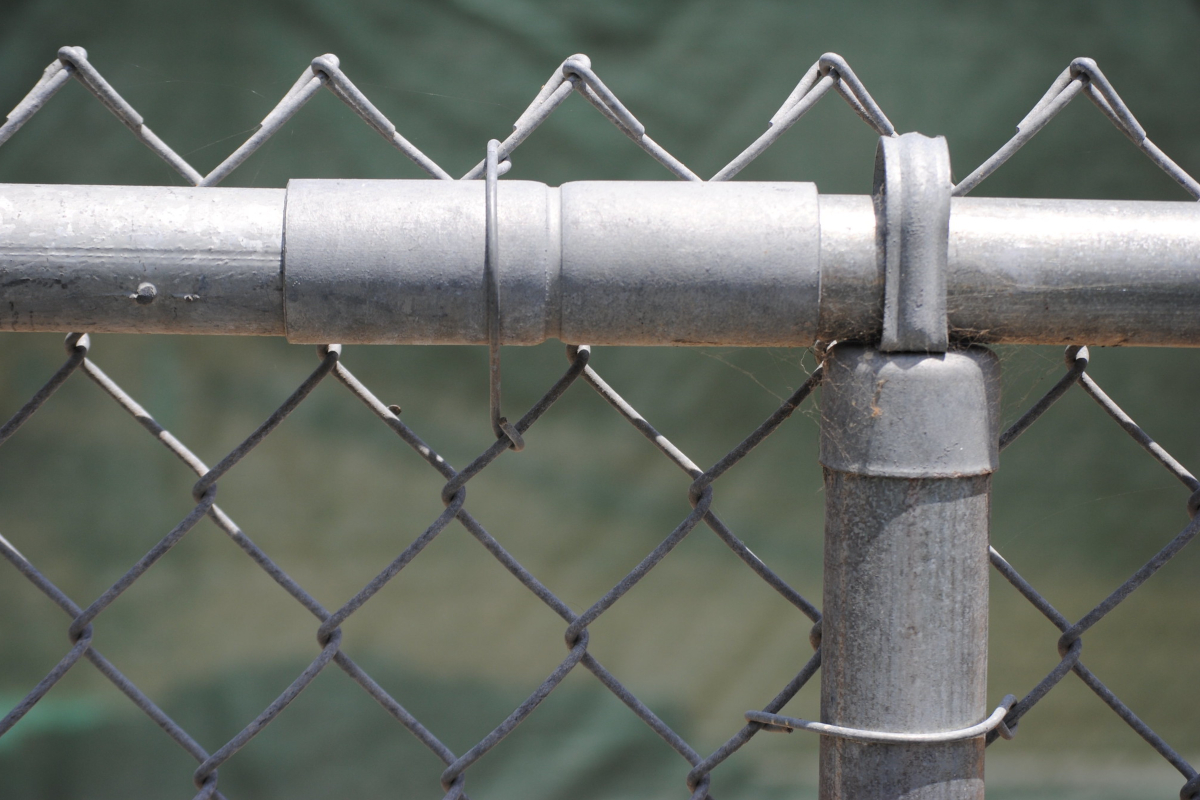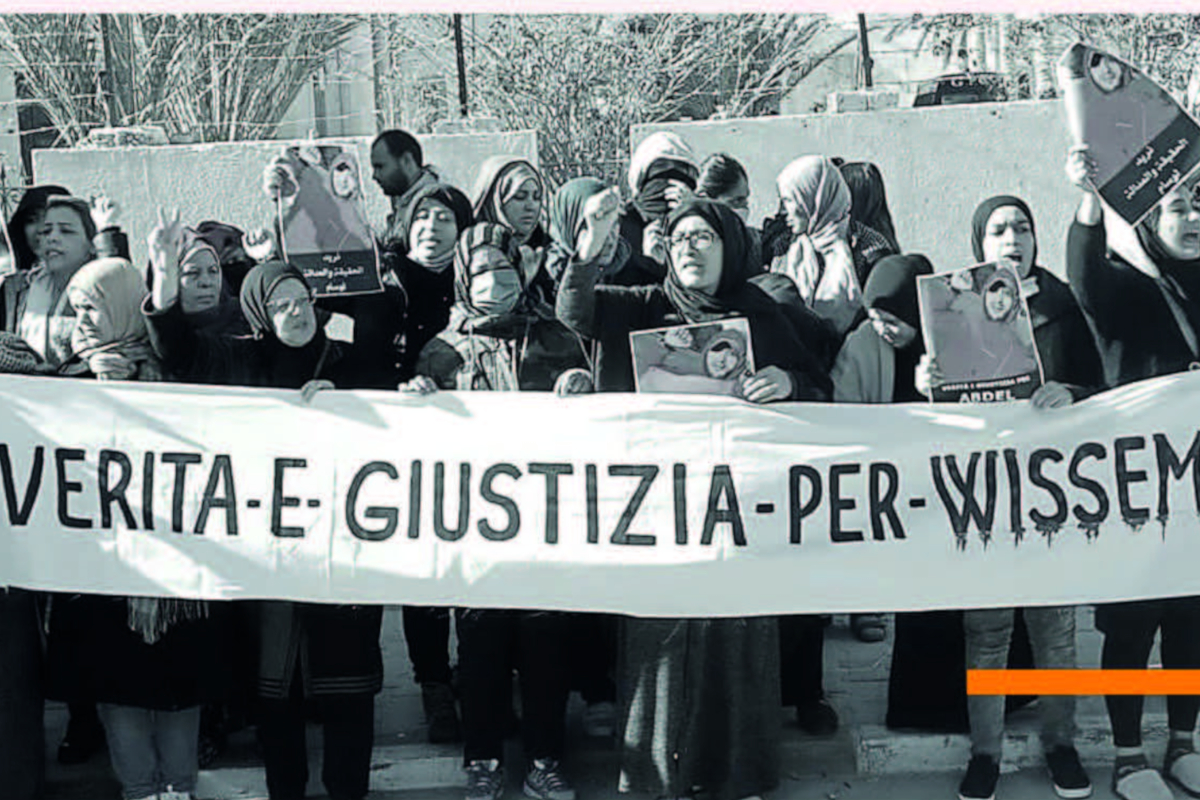Frontex: more power, no responsibility? Mega-agency lacks real accountability structure
Topic
Country/Region
19 April 2022
Since 2004, four successive regulations have increased the agency’s resources and mandate, but no adequate control mechanisms have followed to balance these with legal or political accountability.
Support our work: become a Friend of Statewatch from as little as £1/€1 per month.

This article was originally published in CILIP no.128, 'Die EU – Ein Sicherheitsstaat neuer Prägung?' as 'Frontex außer Kontrolle'.
The European Agency for the Management of Operational Cooperation at the External Borders of the Member States of the European Union – Frontex – was launched in May 2005.[1] Seventeen years later, Frontex – or the European Border and Coast Guard Agency (EBCG) as it has been re-branded – has had its remit, powers and budget expanded multiple times, now holding the largest budget of any EU agency. The 2019 Regulation flew through Parliament approval in a record six months, despite the agency being long accused, for example, of involvement in pushbacks at sea and land borders.[2] By 2020, under the newest mandate, these accusations found mainstream credence in the form of a joint investigation by Bellingcat, Lighthouse Reports, Der Spiegel, ARD and TV Asahi.[3] Accountability structures suddenly seemed to spring up, but to date it is unclear whether they will truly bind Frontex to make meaningful change.
Such structures include an internal management group (the “Working Group on Fundamental Rights and Legal and Operational Aspects of Operations”, [4] a far cry from the independent inquiry demanded by human rights organisations, not involving either the fundamental rights office, nor the Consultative Forum),[5] EU institutional investigations (including the LIBE Committee Frontex Scrutiny Working Group – FSWG –, an OLAF investigation into management at the agency, a Court of Auditors report on the effectiveness of Frontex support,[6] and Ombudsman own initiative inquiries),[7] and international attention. Looking at the broader migration context, the UN Special Rapporteur on the Human Rights of Migrants conducted a report into the practice of pushbacks, following which the Rapporteur, Felipe González, met with the Frontex Fundamental Rights Officer in January 2022, to discuss “the involvement of Frontex in pushbacks and other violations of the rights of migrants”.[8]
Returning to the agency’s origins: what would become Frontex was initially imagined, back in 2001, as a “European Border Police” by some member states, as a means of solidarity for controlling EU External borders which had recently extended with the accession of a number of states.[9] A feasibility study on a European border police was conducted by Italy, Belgium, France, Germany, and Spain, while other member states, including at the time the UK, were reluctant to create a fully-fledged border police force. A compromise was worded in December 2001, which allowed arrangements for cooperation to be worked out, and did not mention “European Border Police” or “European Border Guard” explicitly[10]. The original 2004 Regulation instead established a logistics agency that would “coordinate operational cooperation between member states”, assist with border control and training, support the organisation of joint operations, and develop risk analysis and research on border control and surveillance.[11]
Amendments to the Regulation in 2011 increased the agency’s powers. Frontex could now analyse the capacity of member states to face “threats and pressures at external borders” and assist with “disproportionate pressures”, set up teams for deployment, and support, coordinate or organise return operations.[12] Frontex’s role in surveillance and information exchange also grew, and data protection clauses were introduced. Human rights were also considered, with the agency obliged to take into account “that some situations may involve humanitarian emergencies and rescue at sea”, the duty of non-refoulement, and development of a fundamental rights strategy.
Following the large-scale arrivals of refugees in Europe in 2015, policies reinforcing the EU’s border security framework were waved through, and Frontex was re-launched as the EBCG in October 2016.[13] The 2016 Regulation significantly enhanced the agency as an independent actor in operations, deployment, monitoring and research. Frontex would also develop and operate information storage and exchange, and assist in the development of EUROSUR, the European Border Surveillance System. Initially touted as a way to help save lives at sea, the data fed into EUROSUR is used, amongst other things, for risk analysis. Frontex’s tasks now included contributing to decision making by carrying out monitoring of migratory flows, risk analyses, and vulnerability assessments of member states, as well as participating in the development and management of border control, surveillance and technology related research and pilot projects.[14] Frontex would now organise and coordinate joint operations and rapid border interventions, and deploy technical equipment and EBCG teams, in particular to assist with screening, debriefing, identifying and fingerprinting of people arriving to the EU’s now-established hotspots. This Regulation consolidated deportations as one of Frontex’s primary tasks, with the coordination and organisation of joint return operations bolstered by the agency’s new responsibility to set up pools of forced-return monitors, escorts, and specialists, and to set up and deploy return intervention teams (as well as to launch return interventions in member states).[15]
The 2019 Regulation significantly enhanced the agency’s operational clout, extending its monitoring of member state needs to encompass return operations. It dug into the EU’s deportation obsession by tasking Frontex with launching return interventions and assisting at all stages of the returns process, apart from the removal decision itself (this remains a matter for national authorities, though Frontex can provide information to “inform” these decisions). In most cases, operations will be launched at the request of a member state, but Frontex is now also able to propose operations to member states on the basis of its risk analyses. If national authorities refuse the offer, they must say why; where “urgent action” is deemed necessary, the Council of the EU can adopt a decision that would oblige a member state to accept an agency deployment.[16] In terms of accountability mechanisms for Frontex officers in return operations, Frontex itself manages a pool of fundamental rights monitors, some of whom are from Frontex’s own fundamental rights office. In a January 2022 conclusion to an own-initiative inquiry, the EU Ombudsman reiterated that to ensure independent monitoring, Frontex fundamental rights monitors should not be responsible for reporting on the conduct of Frontex escorts.[17] Frontex’s role in the forced removal of thousands of people annually is growing, with a goal to deport 50,000 people annually, via both chartered and scheduled flights, and with an increasing hand in so-called voluntary returns since 2020.
The greatest enhancements of the 2019 Regulation came through the creation of a 10,000 strong Frontex standing corps of border guards. In parallel, a technical equipment pool was set up, with Frontex now able to purchase and lease equipment itself. In addition, Frontex now has the explicit mandate to cooperate with non-EU states anywhere in the world, including through deployment of border management teams on their territories. Under status agreements signed by the EU and five West Balkan states on Frontex activities on their territory – agreed under the 2016 Regulation, but likely to be the blueprint for future such agreements now that the agency can launch an operation in any state, not just those bordering the EU[18] – Frontex officers enjoy criminal, civil and administrative immunity in the states they are operating in for actions committed in the course of operations.[19] The Frontex executive director has the power to decide whether acts were committed in the exercise of official functions, a decision that is binding in the agreements with Albania, Montenegro, and North Macedonia, where Frontex is already active with several missions.
In theory, Frontex’s compliance with fundamental rights was strengthened accordingly with its amplified potential for impact in the new Regulation. 40 fundamental rights monitors should have been recruited by December 2020 (instead, executive director Fabrice Leggeri prioritised plans to expand his own cabinet to 63 members, and just 20 monitors were recruited by the end of 2021). A fundamental rights strategy and action plan, serious incident reporting procedure, strengthened complaints mechanism and a supervisory mechanism on the use of force are included as safeguards in the 2019 Regulation. Frontex must also monitor compliance with rights in external border and return activities, and work with the Fundamental Rights Agency to ensure continuous and uniform application of the EU’s acquis on fundamental rights. High standards of transparency and public scrutiny of border management, are also included in the regulation, and, perhaps prematurely, Frontex was tasked with training national border guards, in EU and non-EU states, on fundamental rights.
However, safeguards on paper are only useful if they are enforced in practice. As noted by the Ombudsman in January 2022, the due diligence procedure only acts as an appropriate preventative tool if it is taken into consideration by the executive director in their decision to suspend, terminate or not launch an operation – which does not seem to have been the case, for instance in the decision behind the 2020 Rapid Border Intervention in Greece.[20] The procedure does not require that national human rights’ bodies (like national Ombudspeople) are taken into account, let alone independent NGOs.[21]
Both the Consultative Forum and the fundamental rights office have been consistently stymied by a lack of resources and an uncooperative attitude from the agency. The complaints mechanism has been improved since it was first introduced: The 2019 Regulation expands admissibility requirements and allows complaints to be submitted by any party representing an affected individual, rather than placing the full onus to complain on the individual themselves, and obliges Frontex to provide an easily accessible complaints procedure during its operations.[22] Under the 2019 Regulation, the FRO’s annual report must include “specific references to the Agency’s and Member States’ findings and the follow-up to complaints”. [23] However, it still cannot be considered truly independent – the agency’s director and the member states retain key powers over the handling of complaints. In 2021, the EU Ombudsman expressed regret that “there has been a delay by Frontex in implementing the important changes introduced by Regulation 2019/1896”, and recommended extensive changes to the complaints mechanism’s accessibility, including closer cooperation with civil society organisations, allowing anonymous complaints, and greater transparency with the public over the outcome of complaints.[24]
In January 2022, the European Ombudsman closed an own-initiative inquiry into Frontex’s compliance with fundamental rights and transparency obligations under the 2019 Regulation. Stating that “the accountability mechanisms applicable to Frontex’s joint operations can be effective only if Frontex provides sufficient transparency to enable independent scrutiny,”[25] the Ombudsman concluded that Frontex ought to be “proactively transparent” with its operational plans and with the fundamental rights analyses available to the executive director for decisions to launch, suspend, or terminate an operation.[26]
Lack of transparency is a structural problem of Frontex,[27] and crucial information to enable the evaluation of the fundamental rights performance is unattainable. There is no access to information on the Agency’s specific activities, to be found in the highly confidential operational plans and serious incident reports.[28] The European Parliament’s FSWG observed in 2021 that, until recently, the agency had failed to keep the Parliament, one of the bodies to which it is accountable, adequately informed.[29] Executive director Fabrice Leggeri appeared twice before the Parliament in hearings and answered written questions; both the FSWG and the EU Home Affairs Commissioner declared that some of his statements ‘in Parliament [were] not true’.[30]
Ever since Frontex was founded, concerns have been raised over the limited means available to individuals or organisations to hold the agency to account for its actions. Repeated accusations of involvement in human rights abuses and lack of transparency have led to legislative changes, but these have so far failed to lead to improvements in transparency between Frontex and the Parliament and within Frontex in relation to its fundamental rights safeguard.
After seventeen long years of controversy, Frontex is finally being examined by regional courts, with two cases currently in front of the Court of Justice of the European Union, as well requests for the International Criminal Court to open investigations.[31] This, and another case considering crimes against humanity at reception and identification centres on the Aegean islands, points to Frontex practices and their consequences for fundamental rights.[32] Now in a lull following the inquiries of the Parliament, Frontex’s management board and the Ombudsman, and awaiting the outcome of the OLAF investigation and the deliberations of the UN Special Rapporteur, we can ask: will the international courts prove a more biting and binding means of holding Frontex accountable?
Jane Kilpatrick
Notes
[1] Council Regulation (EC) No 2007/2004 of 26 October 2004 establishing a European Agency for the Management of Operational Cooperation at the External Borders of the Member States of the European Union
[2] https://www.borderviolence.eu/wp-content/uploads/Letter-of-concern-from-BVMN-regarding-allegations-of-Frontex-personnel-involved-in-pushbacks1.pdf
[3] Bellincat et al., ‘Frontex at Fault: European Border Force Complicit in ‘Illegal’ Pushbacks’, 23 October 2020, https://www.bellingcat.com/news/2020/10/23/frontex-at-fault-european-border-force-complicit-in-illegal-pushbacks/
[4] https://frontex.europa.eu/media-centre/management-board-updates/conclusions-of-the-management-board-on-the-follow-up-of-the-reports-from-the-wg-fralo-the-frontex-scrutiny-working-group-the-european-ombudsman-eca-and-ias-Dqvm0w
[5] https://frontex.europa.eu/media-centre/news-release/frontex-welcomes-establishment-of-management-board-working-group-z1aFSC
[6] European Court of Auditors, Special Report 08/2021, “Frontex’s support to external border management: not sufficiently effective to date”, https://www.eca.europa.eu/en/Pages/DocItem.aspx?did=58564
[7] European Ombudsman, How the European Border and Coast Guard Agency (Frontex) deals with complaints about alleged fundamental rights breaches through its 'Complaints Mechanism', Case OI/5/2020/MHZ, https://www.ombudsman.europa.eu/en/case/en/57955
[8] https://twitter.com/UNSR_Migration/status/1480537655720902656
[9] House of Lords Select Committee on European Union, ‘Twenty-Ninth Report’, 2003, Chapter 3: integrated border management and a European border guard, 22, https://publications.parliament.uk/pa/ld200203/ldselect/ldeucom/133/13305.htm#n23
[10] ibid
[11] Council Regulation (EC) No 2007/2004, Article 2
[12] Regulation (EU) No 1168/2011 of the European Parliament and of the Council of 25 October 2011 amending Council Regulation (EC) No 2007/2004 establishing a European Agency for the Management of Operational Cooperation at the External Borders of the member states of the European Union
[13] European Commission fact sheet, ‘European Agenda on Migration: Securing Europe's External Borders’, 15 December 2015, http://europa.eu/rapid/press-release_MEMO-15-6332_en.htm
[14] Regulation (EU) 2016/1624 of the European Parliament and of the Council of 14 September 2016 on the European Border and Coast Guard and amending Regulation (EU) 2016/399 of the European Parliament and of the Council and repealing Regulation (EC) No 863/2007 of the European Parliament and of the Council, Council Regulation (EC) No 2007/2004 and Council Decision 2005/267/EC, Article 8
[15] Regulation (EU) 2016/1624, Article 8(1) and 8(1)(l)
[16] Regulation (EU) 2019/1896 of the European Parliament and of the Council of 13 November 2019 on the European Border and Coast Guard and repealing Regulations (EU) No 1052/2013 and (EU) 2016/1624, Articles 37-42; Herbert Rosenfeldt, ‘Establishing the European Border and Coast-Guard: all-new or Frontex reloaded?’, EU Law Analysis, 16 October 2016, https://eulawanalysis.blogspot.com/2016/10/establishing-european-border-and-coast.html
[17] European Ombudsman, Decision in OI/4/2021/MHZ on how the European Border and Coast Guard Agency (Frontex) complies with its fundamental rights obligations and ensures accountability in relation to its enhanced responsibilities, https://www.ombudsman.europa.eu/en/decision/en/151369
[18] Regulation (EU) 2019/1896, Article 71, Article 10(1)(u), Article 54 (2)
[19] Jane Kilpatrick, ‘Briefing: External action: Frontex operations outside the EU’, Statewatch, 11 March 2021, https://www.statewatch.org/analyses/2021/briefing-external-action-frontex-operations-outside-the-eu/
[20] Frontex Consultative Forum on Fundamental Rights, ‘Eighth Annual Report, 20202, October 2021, https://frontex.europa.eu/assets/Partners/Consultative_Forum_files/Frontex_Consultative_Forum_Annual_Report_2020.pdf
[21] European Ombudsman, Decision in OI/4/2021/MHZ
[22] Regulation (EU) 2019/1896 of the European Parliament and of the Council of 13 November 2019 on the European Border and Coast Guard and repealing Regulations (EU) No 1052/2013 and (EU) 2016/1624, Article 111(2) and 111(10)
[23] Regulation (EU) 2019/1896 of the European Parliament and of the Council of 13 November 2019 on the European Border and Coast Guard and repealing Regulations (EU) No 1052/2013 and (EU) 2016/1624, Articles 111(9)
[24] European Ombudsman, Decision in OI/5/2020/MHZ on the functioning of the European Border and Coast Guard Agency's (Frontex) complaints mechanism for alleged breaches of fundamental rights and the role of the Fundamental Rights Officer, https://www.statewatch.org/media/2520/document_en_143108.pdf
[25] European Ombudsman, Decision in OI/4/2021/MHZ
[26] European Ombudsman, Decision in OI/4/2021/MHZ
[27] European Union Committee, Frontex: the EU External Borders Agency. Report with Evidence (HL 2007–08, 60–III) (United Kingdom, House of Lords), http://www.publications.parliament.uk/pa/ld200708/ldselect/ldeucom/60/60.pdf
[28] Anneliese Baldaccini, ‘Extraterritorial Border Controls in the EU: The Role of Frontex in Operations at Sea’, 229–257 in Bernard Ryan and Valsamis Mitsilegas (eds), Extraterritorial Immigration Control: Legal Challenges (Martinus Nijhoff Publishers 2010) 229–257, 230 225–251.
[29] European Parliament, LIBE Committee on Civil Liberties, Justice and Home Affairs, ‘Working Document; Report on the fact-finding investigation on Frontex concerning alleged fundamental rights violations’ (2021), 16 https://www.statewatch.org/media/2590/ep-frontex-scrutiny-group-final-report-14-7-21.pdf
[30] Daniel Boddey and Apostolis Fotiadis, ‘EU border force head faces calls to quite over allegations he ‘misled’ MEPs’ The Guardian (London, 19 January 2021) https://www.theguardian.com/global-development/2021/jan/19/eu-border-force-head-fabrice-leggeri-faces-calls-to-quit-over-allegations-he-misled-meps
[31] Statewatch, ‘EU: Frontex asks court to reject human rights case, seeks legal costs from asylum seekers, 5 January 2022, https://www.statewatch.org/news/2022/january/eu-frontex-asks-court-to-reject-human-rights-case-seeks-legal-costs-from-asylum-seekers/
[32] Ilaria Aversa and Mariana Gkliati, Communication to the Office of the Prosecutor of the International Criminal Court – sea deaths’ 6 March 2021, ‘https://www.statewatch.org/observatories/frontex/frontex-under-scrutiny-inquiries-and-investigations-november-2020-onwards/communication-to-the-office-of-the-prosecutor-of-the-international-criminal-court-sea-deaths/; Aversa and Gkliati, ‘Communication to the Office of the Prosecutor of the International Criminal Court – SJAC’ 6 March 2021, https://www.statewatch.org/observatories/frontex/frontex-under-scrutiny-inquiries-and-investigations-november-2020-onwards/communication-to-the-office-of-the-prosecutor-of-the-international-criminal-court-sjac/
Image: Former EU Commissoner for Migration and Home Affairs, Dimitris Avramopoulos, at Frontex's Warsaw headquarters in 2017. Kancelaria Premiera, public domain
Our work is only possible with your support.
Become a Friend of Statewatch from as little as £1/€1 per month.
Spotted an error? If you've spotted a problem with this page, just click once to let us know.

